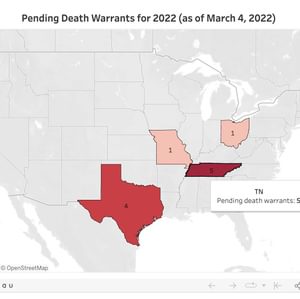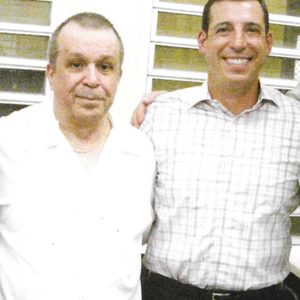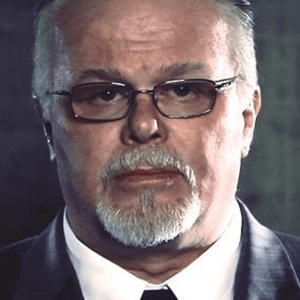Tennessee Sets Three Execution Dates for Most-in-Nation 5 Pending Executions in 2022
- Tennessee
- Executions
- Upcoming Executions
- Byron Black
- Gary Sutton
- Donald Middlebrooks
- Harold Nichols
- Oscar Smith
Mar 05, 2022
The Tennessee Supreme Court has issued death warrants setting execution dates for three prisoners, bringing to five — the nation’s‑high — the number of executions pending in the state in 2022. On February 22, 2022, the court set execution dates of August 18 for Byron Black, October 6 for Gary Sutton, and December 8 for Donald Middlebrooks. The court had previously set execution dates of April 21 for…
Two Death-Row Prisoners with Innocence Claims Die on Death Row, Two Days Apart.
Feb 26, 2022
Two death-row prisoners who have long asserted their innocence, one in North Carolina and the other in Alabama, have died of cancer on their…
Ohio Governor Issues Three More Reprieves, Reschedules Executions for 2025
- Ohio
- Executions
- Upcoming Executions
- Reprieves
- Percy Hutton
- Cedric Carter
- Douglas Coley
- Kareem Jackson
Feb 19, 2022
Ohio Governor Mike DeWine has issued reprieves of three more executions that had been set to occur in 2022, rescheduling them for 2025. In executive orders issued February 18, 2022, DeWine halted the executions of Percy Hutton, Douglas Coley, and Cedric Carter, who had been scheduled to be put to death June 22, July 20, and August 24, 2022, respectively. The governor rescheduled Hutton’s execution for June…
Discussions With DPIC Podcast: The Becket Fund’s Daniel Chen on the Exercise of Religion in the Execution Chamber
- Texas
- Research
- Religion
- United States Supreme Court
- Becket Fund for Religious Liberty
- Ramirez v. Collier
Nov 15, 2021
In the November 2021 episode of Discussions with DPIC, Daniel Chen, counsel at the Becket Fund for Religious Liberty, speaks with DPIC Executive Director Robert Dunham about the Supreme Court case Ramirez v. Collier and death-row prisoners’ rights to religious freedom. John Ramirez has challenged Texas’ restrictions on audible prayer and physical touch by his spiritual advisor during his execution. Allowing such pastoral comfort in the execution…
Death-Row Exoneree Kirk Bloodsworth Receives Supplemental Compensation Under New Maryland Wrongful Imprisonment Statute
Oct 06, 2021
Kirk Bloodsworth, the first former death-row prisoner to have been exonerated by DNA testing, has become the first person to receive supplemental compensation under a new Maryland wrongful imprisonment…





